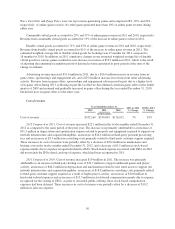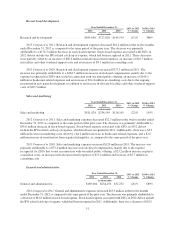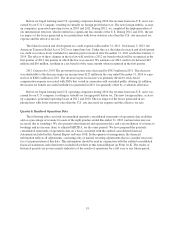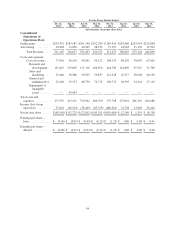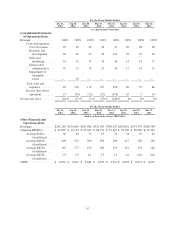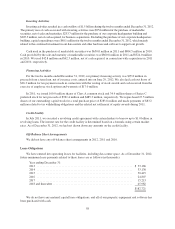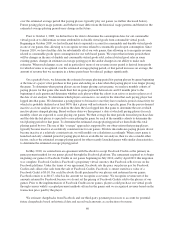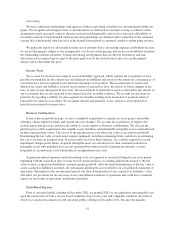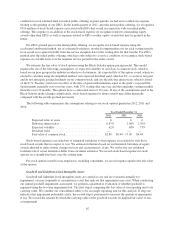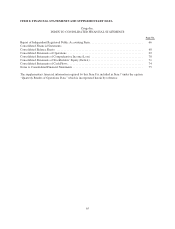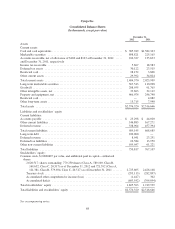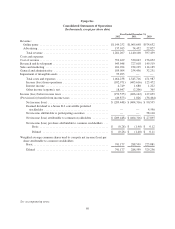Zynga 2012 Annual Report Download - page 67
Download and view the complete annual report
Please find page 67 of the 2012 Zynga annual report below. You can navigate through the pages in the report by either clicking on the pages listed below, or by using the keyword search tool below to find specific information within the annual report.Critical Accounting Policies and Estimates
The preparation of financial statements in conformity with U.S. GAAP requires management to make
estimates and assumptions that affect the reported amounts in our consolidated financial statements and related
notes. Our significant accounting policies are described in Note 1 to our consolidated financial statements
included in this Annual Report. We have identified below our critical accounting policies and estimates that we
believe require the greatest amount of judgment. These estimates and judgments have a significant impact on our
consolidated financial statements. Actual results could differ materially from those estimates. The accounting
policies that reflect our more significant estimates and judgments and that we believe are the most critical to fully
understand and evaluate our reported financial results include the following:
• Revenue recognition
• Income taxes
• Business combinations
• Stock-based expense
• Goodwill and indefinite-lived intangible assets
• Impairment of long-lived assets
Revenue Recognition
We derive revenue from the sale of virtual goods and from the sale of advertising within our games.
Online game
We operate our games as live services that allow players to play for free. Within these games, players can
purchase virtual currency to obtain virtual goods to enhance their game-playing experience. Players can primarily
pay for our virtual currency using Facebook Credits when playing our games through the Facebook platform, and
can use other payment methods such as credit cards or PayPal on other platforms. We also sell game cards that are
initially recorded as a customer deposit liability which is included in other current liabilities on the consolidated
balance sheet, net of fees retained by retailers and distributors. Upon redemption of a game card into one of our
games and delivery of virtual currency to the player, these amounts are reclassified to deferred revenue.
We recognize revenue when all of the following conditions are satisfied: (1) there is persuasive evidence of
an arrangement; (2) the service has been provided to the player; (3) the collection of our fees is reasonably
assured; and (4) the amount of fees to be paid by the customer is fixed or determinable. For purposes of
determining when the service has been provided to the player, we have determined that an implied obligation
exists to the paying player to continue displaying the purchased virtual goods within the online game over their
estimated life or until they are consumed. The proceeds from the sales of virtual goods are initially recorded in
deferred revenue. We categorize our virtual goods as either consumable or durable. Consumable virtual goods,
such as energy in CityVille, represent goods that can be consumed by a specific player action. Common
characteristics of consumable goods may include virtual goods that are no longer displayed on the player’s game
board after a short period of time, do not provide the player any continuing benefit following consumption or
often times enable a player to perform an in-game action immediately. For the sale of consumable virtual goods,
we recognize revenue as the goods are consumed. Durable virtual goods, such as tractors in FarmVille, represent
virtual goods that are accessible to the player over an extended period of time. We recognize revenue from the
sale of durable virtual goods ratably over the estimated average playing period of paying players for the
applicable game, which represents our best estimate of the average life of our durable virtual goods. If we do not
have the ability to differentiate revenue attributable to durable virtual goods from consumable virtual goods for a
specific game, we recognize revenue from the sale of durable and consumable virtual goods for that game ratably
59



